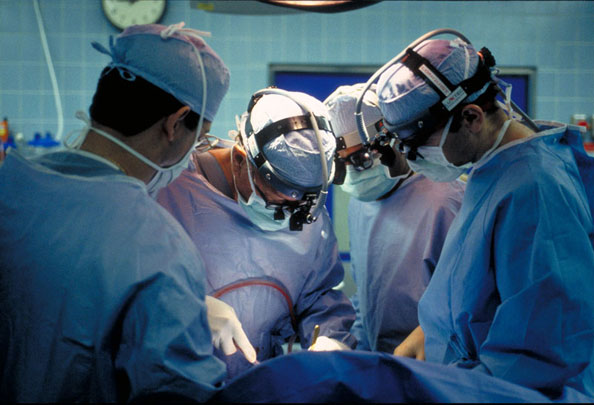
Shake Your Money Maker…
By Alexandra Murray, Staff Writer
Your moneymaker being your heart and the procedures cardiologists perform on it, of course! Cardiologists and the hospitals where they work rake in money through heart surgeries. Physicians in the United States are generally compensated on a fee-for-service basis, which means that for every procedure performed, the physician and the hospital are compensated. Certain specialties are incredibly lucrative for both physician and hospital, including orthopedic surgery, cardiology, and gastroenterology. [2] This is great for physicians who spent years in medical school and residency before they are able to reap the rewards by performing surgeries on their own and paying off their medical school loans. However, as Dr. Steven Nissen, head of cardiovascular medicine at the Cleveland Clinic, points out in an interview with the New York Times, the fee-for-service system creates “…misaligned incentives among some physicians to do more procedures and among some institutions, particularly in areas where there is not tight medical supervision, to turn a blind eye and enjoy the high revenue stream.” [3] Essentially, physicians become motivated to perform as many procedures as possible and receive bonuses for having highly productive years.
What does this mean for patients?
Patients end up unnecessarily under the knife risking their lives. Money is drained from insurance companies, Medicare and Medicaid. According to The Centers for Medicare and Medicaid Services (CMS) the standard for cardioid artery stenting is a blockage greater than or equal to 70%, which means that CMS will only cover procedures where physicians meet this standard and generally surgery is not necessary below that percentage of blockage. [4] A cardiologist in Maryland told patients they had blockages of 90% when in fact their records showed blockages closer to 10% or less and performed medically unnecessary procedures. [5] The Maryland cardiologist performed 585 stent procedures in 2 years and Medicare paid $ 3.8 million of the $ 6.6 million charged. [6] This issue is not new, as patients are often unlikely to question the advice of their physician and in rural areas often have limited options when looking for a second opinion.
What does this mean for lawyers and greater society?
The ramifications of this are vast and attorneys and physicians have the ability to create change in the field of medicine. Individuals who are on the receiving end of unnecessary surgeries need quality representation. Family members and friends who are considering cardiac or other surgical remedies need someone to remind them to get a second opinion when possible. Physicians and hospital personnel need attorneys to assist in reporting Medicare fraud and abuse through the False Claims Act to prevent unnecessary surgeries and waste. The performance of unnecessary medical procedures – Medicare Fraud and Abuse – might not be a glamorous issue but it is an issue that needs the attention of attorneys who can lend a hand in keeping patients safe and preventing waste.
[0] Elmore James – Shake Your Money Maker https://www.youtube.com/watch?v=vn77rGEV6XM
[1] http://www.forbes.com/pictures/eekj45fmdl/the-10-best-paying-medical-specialties/)
[2] http://www.nytimes.com/2015/10/18/business/a-small-indiana-town-scarred-by-a-trusted-doctor.html?_r=1
[3] https://www.cms.gov/medicare-coverage-database/details/nca-decision-memo.aspx?NCAId=157&ver=29&NcaName=Carotid+Artery+Stenting+(1st+Recon)&bc=BEAAAAAAEAAA&&fromdb=true
[4] http://www.healthbeatblog.com/2010/12/stent-scandal-a-shocking-story-but-not-news/
[5] http://www.healthbeatblog.com/2010/12/stent-scandal-a-shocking-story-but-not-news/